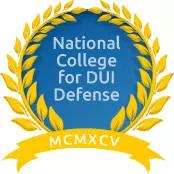Most people believe you cannot receive a DWI without driving. However, according to the DWI laws in Texas, officers can arrest and charge you for DWI even when you are not driving an automobile.
Moreover, law enforcement can charge you with DWI in Texas, even if you are not present inside the vehicle. Although this may sound strange, this circumstance is a real possibility with serious legal consequences. This article will explore some of the DWI laws in Texas and the grounds for receiving a DWI when not driving.
Know the DWI Laws in Texas
The Texas Penal Code defines a DWI offense as “operating” an automobile in a public area while intoxicated. The governing word here is “operating” and not “driving.” The law allows the court to interpret the meaning of “operating” a vehicle.

The precedence surrounding DWI laws in Texas dictates that “operate” in this context applies when an individual exerts control over an automobile. Past court cases show that this legal definition of DWI in Texas may include incidents such as:
- An intoxicated individual located in the driver’s seat of a stationary car is sitting with the keys in the ignition.
- An intoxicated individual gets into an accident involving only one vehicle and is not operating it when the police arrive, but that driver is, or was, in control of the vehicle.
While the accused in both scenarios is not driving the motor vehicle, there could be probable cause to make a case for “operating” the automobile. These are the kind of peculiar situations where you must have a knowledgeable Houston DWI lawyer on your side to defend your position.
Actions Viewed as Operating a Vehicle
Before you get into a vehicle or even think of operating it in an intoxicated state, you should be aware of some of the seemingly innocuous behaviors that might fit into a Texas court’s definition of vehicle operation. Examples include:
- Starting your vehicle only to turn on the heater for warmth
- Playing the music system or radio in your car
- Sleeping inside your car while the keys are in the ignition
- Starting your vehicle remotely while you are walking toward it
While you may imagine these types of behaviors are harmless, they are reasons for law enforcement to charge you with a DWI without driving in Texas.
 Factors the State Might Consider for a DWI Charge
Factors the State Might Consider for a DWI Charge
The state will consider several factors to establish a case under DWI laws in Texas for operating a vehicle while intoxicated:
- Your physical proximity to your car might indicate that even though you were not operating the vehicle when law enforcement arrived, you could have operated it recently.
- Statements of any eyewitnesses may reveal that you recently operated the car.
- Any self-incriminating statements or your admission of guilt may be permissible.
- Any physical evidence that establishes you operated the vehicle recently.
A skilled Houston DWI lawyer will employ various legal strategies in these cases to cast doubt that you were not operating the vehicle at the time of your DWI arrest.
Defend Yourself from a DWI
An arrest is not an admission of guilt. You can fight your DWI case with the help of a professional and experienced team of DWI defense attorneys. Flood & Associates will fight tirelessly to seize a victory on your behalf. Choose a law team with the highest win rate and the courage to not take a plea deal on cases where other firms timidly retreat. Call us today at 713-224-5529 for a free case review. We are available day and night, 24/7, 365 days a year, to fight for your rights.









